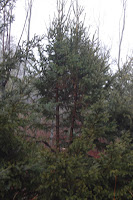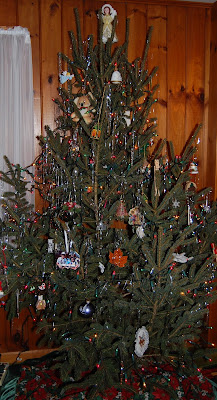
Of Love And Betrayal
Welcome to the River today, Louise. Thanks for stopping in.
Tell us about your latest book, Of Love and Betrayal. How did it come about? How did it change as you researched wrote and it?
My latest book is Of Love and Betrayal. It takes place fifty something years after the first book in the series, Of Love and Vengeance. It features the grandson of the hero and heroine from the first book.
Interestingly, this book came about purely because I was avoiding doing housework! I don’t like housework and will look for any excuse not to do it. So, instead of vacuuming, I decided I would put together Laila and Aymon’s (the heroine and hero from Vengeance) family tree. One name kept popping out at me – Troy. For days I kept thinking about him and it was obvious he wanted me to write his story. And so I did. Of Love and Betrayal has lots of action, danger, dark emotions, and betrayal–and of course love.
It’s become apparent Aymon and Laila have lots of grandchildren, and great grandchildren too, so there will certainly be other “Of Love and…” books to come!
Well, I know I sure prefer writing over vacuuming! Or doing laundry, dishes, or dusting. Do you have a favorite character? Why?
I love Troy, the hero from Of Love and Betrayal. I don’t know why. I guess he’s as close to the type of guy I personally would go for.
That's a good reason to like a guy. Especially when you can make him do whatever you want. I'm curious--what authors do you return to again and again, if any? Where do you find new authors to read?
I will always pick up a Jodi Picoult book no matter what. I love her. And of course, Diana Gabaldon. Although I have to admit I haven’t read her last two books – not enough time! As for discovering new authors? I scroll the lists on Amazon and if a blurb interests me then I’ll buy the book – I’ve discovered many new authors that way.
Picoult is one of those authors you can read over and over, and still discover something new. Do you have a writing routine/ritual? What distracts you when you’re writing?
I’m disciplined when it comes to writing – especially on the weekends. Not so much during the week as I have a day job. But the weekend is a different story. I try to get everything I need to do (non writing wise) done during the week so that on Saturday and Sunday I wake up and just start writing. I do get distracted by TV, I have to admit. And I have it on in the background when I write (with the volume down low) because I find it’s more distracting if it’s quiet.
What do you like best/least about writing?
The voices in my head! Now, that can be the best or least good thing about writing. I’m not sure yet. But I constantly have voices in my head – bits of dialogue, snippets of scenes. And if I don’t pay them any attention (i.e., write their story) they only get louder and louder. And as soon as I’ve written their story then it makes room for other voices. It’s never ending and often new voices will pop into my head when I’m part way through another story. I’m usually easily distracted so I have to be disciplined and refuse to listen to them. For now.
Oh, I know about those voices. They even wake me up at night. What are your favorite non-writing activities?
I enjoy spending time with family and friends. I’m also a movie addict so I tend to watch a lot of movies/TV shows. And of course I read as well. Does eating chocolate count as an activity? If so, I do that a lot as well.
Yes, eating chocolate counts. I figure the calories used to chew it counteract the ones consumed. What is your advice for newbies?
Write. Then write some more. And when you think you’ve written enough, keep writing! The other piece of advice I’ll mention, and this was mentioned to me when I first started, is to write the book of your heart. Don’t worry about what is trending, or selling, or popular. Write the book you want to write. You never know, you may be the one to start the next trend! After all, wouldn’t you rather be a trend setter rather than a trend follower?
Now that Of Love and Betrayal has hit the shelves, what else are you working on?
I’ve temporarily dragged myself from the medieval period and am working on a contemporary novel, tentatively named Catch Me If You Can. It’s a romance; think Cold Case, Law and Order, Criminal Minds, and Bones. It has a handsome hero and a kick butt heroine!
Are you a pantser or a plotter?
I used to be a pantser. Now I’m part pantser and part plotter. I have a goal to become a total plotter but I don’t think I will. I like not knowing everything that is going to happen. There is a certain something that happens in, Of Love and Betrayal, that came completely out of the blue. I had no idea it was going to happen it just did. And if I had been a plotter I probably would have missed that incident. Being a pantser is very much like walking around the corner and having no idea what is awaiting you. That’s both fun and scary at the same time. I’m not ready to give that up!
Do you have critique partners or beta readers? How do they help?
No. I don’t have either. And I guess the reason I’m answering this question is because I want to let those writers out there who either don’t have/want a critique partner know that you don’t necessarily need them. Controversial I know! I’ve always had it drummed in to me that I need a critique partner. I used to have them many, many, many moons ago – and well, I don’t know. I felt my writing was being stunted. And when I parted ways with the partners I went through a very difficult time believing I wouldn’t be able to get published if I didn’t have someone look at my story first. But, I pushed through that. And yes, it does still scare me that no other eyes see the story before my editor does!
Writers seem to be creative from a very young age. Do you remember the first story you wrote?
I can’t remember the first story I wrote because we were
always encouraged/required to write stories at school. However, I do remember
the first story I wrote outside of school. It was a blatant rip off of Dirty
Dancing and it was bad. I mean, seriously bad. But, at the time I thought it
was really good. I must try to find it. I’m sure it’s floating around somewhere…

Of Love and Betrayal
by
Louise Lyndon
BLURB:
Aveline de Bondeville is on the run.
Determined to keep out of the hands of the cruel Raimbaut de Blois she will do
whatever it takes to stay alive. And so when she finds herself in the company
of Troy de Gysborne she must quickly decide if she can trust him. But can she
confess to murder knowing it would mean her certain death?
Troy de Gysborne did the unthinkable; he tore the bonds of brotherhood and left
a path of destruction in his wake. And now Troy must face those he betrayed,
including the father who long ago renounced him. But to confess to the crime he
committed will cost him everything. Including Aveline. But can he remain silent
if it means losing the woman he loves?
Excerpt:
Aveline’s scream burned her throat; she tasted
blood. Eudes staggered forward, his eyes wide. He looked at her as he fell to
his knees and then slumped forward. Bright red blood rushed from his wound and
pooled on the ground. She looked at Raimbaut.
“This time
you shall not escape.”
She picked up
her skirts and ran headlong into the forest and did not slow her speed as
branches slapped her in the face and tore at her arms. The ground beneath her
feet was icy and uneven. She risked a glance over her shoulder and did not stop
even though Raimbaut was nowhere to be seen. He may not have been behind her,
but it did not mean he was not stalking her.
Sweat
trickled down her face and burned her eyes. Her heart pumped, her lungs gasped
for air. She came to a skidding stop and looked wildly around. Should she keep
running straight, go left or right, or make her way back to Gysborne? She
turned in a circle and shoved her hair from her eyes.
A twig
snapped behind her. She stilled and held her breath. Out of the corner of her
eye, she saw a blur rush by. Was it an animal? Was it Raimbaut?
She ignored
the pain in her chest and her sudden need to loosen her bladder. But she could
not ignore her trembling. She clutched her arms to her chest. A sour taste
flooded her mouth as she did not see how she would be lucky enough a second
time to escape from Raimbaut.
AUTHOR BIO:
Louise grew up in country Victoria,
Australia, before moving to England, where for sixteen years she soaked up the
vibrancy of London and the medieval history of England. She has since returned
to Australia and now lives in Melbourne.
In 2013, Louise won first prize in
the historical romance category of the Crested Butte Sandy Writing Contest for
her story, The Promise, which has since been retitled and is now known as Of
Love Vengeance.
When not writing, Louise can be found
covered in mud, crawling under barbed wire and hoisting herself over twelve
foot walls!
AUTHOR LINKS:
EMAIL: louise_lyndon@yahoo.com
WEB: www.LouiseLyndon.com
FACEBOOK: www.facebook.com/pages/Louise-Lyndon/1472910852955051
TWITTER: https://twitter.com/LouiseLyndon1
PINTEREST: llyndon3513
GOODREADS:
https://www.goodreads.com/LouiseLyndon
BUY LINKS:















.jpg)